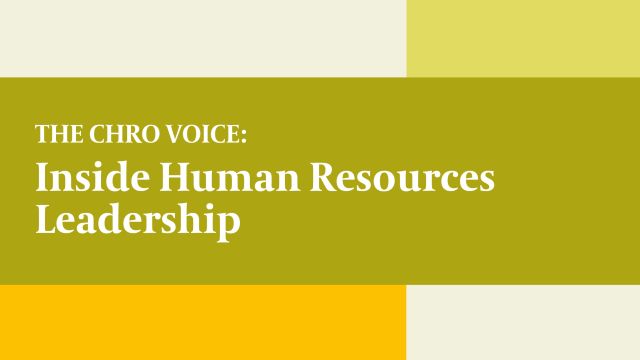We had the pleasure of speaking with Rashmi Gupta, Chief HR Officer at Magnit, a leading provider of contingent workforce solutions. She shared insights on maintaining a people-centric approach, her journey into the HR field, talent development strategies, and the future of HR.
It has changed so much. Five years ago, we were talking about HR as a strategic function. Today, that's table stakes. Every company is going through so much transformation and change, and evolving to address the new normal, whether that's AI or the changing business environment. HR has gone from being a supporting function to an enabling function. That's the biggest transformation we're going through and AI is at the forefront of that. This impacts skill sets, who we are bringing on, what our organizations look like, how we are upskilling, and how we interact with our employees. Hybrid and remote work have changed everything over the last five years, not just in terms of remote policies but in terms of how we engage our employees and manage productivity.
In addition, the ever-changing employer-employee dynamic has shifted from the Great Resignation to the opposite end of the spectrum in the last year. Five years ago, we focused on perks; now it's about well-being, bringing your whole self to work, and mental wellness. There's a growing expectation for organizations to be purpose-driven and socially responsible, and HR is at the forefront of that.
In summary, we've gone from being a business-supporting function to a business-enabling function.
We at Magnit have also been facing an accelerating pace of business evolution, transformation, evolving employee expectations, and the expectation to be an agile organization. All of that pushes the HR role to the forefront. I would say there are three areas I'm particularly focused on:
- Business-enabling work design: Ensuring we have the right skills, capabilities, and structures in place to do both the business of today and plan for the future.
- Digital and data fluency: Leveraging people and business analytics, and the tech available to us to enable faster, agile decision-making.
- Culture and leadership: Shaping an adaptive culture and developing our leaders to navigate through the complexity we're seeing in business today, navigating change, and inspiring performance.
As the demand for a human-centric employee experience continues to rise, what are your biggest talent management and employee engagement priorities?
The push for a more human-centric employee experience is something I'm passionate about. It's especially important as the business scenario evolves. Our biggest priority is to create a strong sense of community, especially in a highly remote environment. Supporting continuous growth and upskilling as we evolve our business model, offering flexibility without losing engagement and productivity, is key. We focus on rethinking our key touchpoints, such as onboarding conversations, development trainings, and transitions, making them more meaningful and personalized. We regularly seek listening opportunities through employee surveys, whether full surveys, pulse surveys, or quick questions after all-hands meetings. We're always looking to hear back from our employees about their experiences with our offerings and how their needs are changing, so we can evolve accordingly. We're invested in transparent communication and shaping the day-to-day experience for our employees. At the end of the day, it's about making people feel seen, supported, and set up to thrive.
What advice do you have for the next generation of HR leaders in terms of their own development and career paths?
Think beyond Human Resources. Immerse yourself in the business, stay curious, and lead with empathy. I love Microsoft's "learn it all" terminology, and I think it's a great way to approach HR roles. I advise people to build diverse experiences across functions, geographies, industries, even within HR. Reflecting on my experience, I spent over a decade in employee experience and L&D. Then I shifted to an HRBP role, and my perspective on talent programs and talent management completely changed. Getting exposure to the HRBP side, talent acquisition, and compensation was invaluable. Gain as many different experiences as you can because that really brings a full perspective. I believe the future belongs to those who can balance diversity experiences and strategy.
It's been the case for a few years now, but as employers, we play more than just the role of providing a paycheck. Talent wants us to be purpose driven. They want to come to a purpose-driven workplace. They want flexibility, inclusion, growth opportunities, well-being, and psychological safety. It's really about providing a comprehensive environment. Along with that, transparency and social responsibility are crucial. These needs evolve continuously. For Magnit, we're focused on three main areas. First, creating a community. We've recently launched internal networking sessions for our employees to get to know their peers across different departments. Second, learning sessions to share what different teams are doing for innovation. Third, ERGs are a big part of what we do.
We engage in community work, for example, we’ve sewn blankets for nonprofits as part of giving back. We also do fun activities like posting memes and having employees caption them to foster a sense of belonging and community. We spend so much of our lives at work, and it's more than just a place to get a paycheck.
Flexibility is another area we've focused on, allowing us to attract the best talent regardless of location. This flexibility requires greater discipline in goal setting and performance alignment. Talent development, onboarding, and investing in career pathing are also key areas. We're far from perfect, and any organization that thinks it's perfect is mistaken because expectations continue to evolve. We listen, we get feedback regularly and evolve as needed.
I think this is going to be a cliché answer, but AI. I am both excited and petrified about what it will do. Some of the tools in HR and outside that we are experimenting with or looking at are amazing. They will really change the pace of work and the industry. AI will change the way HR has worked forever. I say petrified because it opens up many concerns from a security and data protection perspective, which HR professionals must consider. However, this shouldn't prevent us from progressing. We need to be careful with guidelines and how we best adapt and utilize these tools. Even in my personal workflows, AI has transformed my productivity and my team's productivity. I can only imagine what it will do to our future.
Explore our candid conversations with HR Leaders from some of the world's most recognizable companies, sharing real challenges and impactful solutions.

 Shaping Successions
Shaping Successions
 Advancing Governance
Advancing Governance
 Discovering Leaders
Discovering Leaders
 Developing Leadership
Developing Leadership

